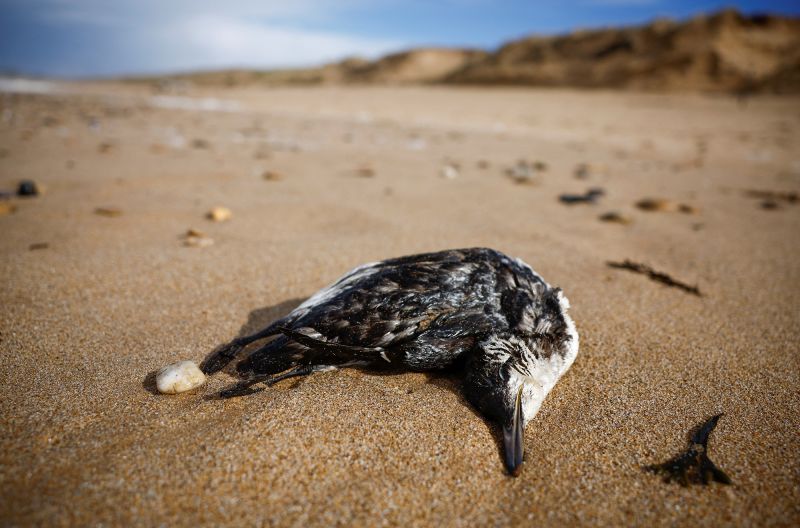Research undertaken by the French Biodiversity Office (OFB) has revealed the shocking occurrence of a mass die-off of seabirds across a significant stretch of the French coastline. According to the report, more than 500 dead seabirds, most of them young guillemots, have washed up on the French beaches over the past couple of weeks, causing alarm among environmental experts and prompting urgent calls for investigations into the potential causes.
The guillemot, a marine bird species, is known for its dependence on a diet rich in fish. Its breeding season, which typically falls between April and July is particularly crucial as the birds require stable nourishment to sustain themselves and their offspring. The discovery of the deceased birds, primarily fledgling guillemots, has therefore raised concerns about the potential depletion of food resources in their habitats.
Estimates indicate that the number of deaths far exceeds the amount that is ordinarily expected. These serious deviations trigger sharp concerns about the wider impacts on the overall bird population. Close examinations of the dead birds have revealed that the majority died from emaciation, often a result of malnutrition or disease. This is an alarming signal that the food chain of these marine birds may be disrupted.
Multiple factors could be contributing to this mass loss of seabird life. Predominantly, changes in marine ecosystems, influenced by climate change and pollution, may very well be the leading cause of this phenomenon.
The effects of climate change on oceans and seas cause shifts in sea temperatures and currents, which impacts the distribution and numbers of fish populations, thus affecting the food resources for seabirds like guillemots. When the supply of fish decreases due to these changes, these seabirds face starvation and a consequential increase in mortality rates.
Moreover, pollution, particularly plastic pollution, is another culprit behind the death toll. Ocean contamination by microplastics has become an ever-increasing worldwide concern. These tiny plastic fragments, often ingested by fish and, subsequently, by feeding seabirds, can block their digestive tract, causing internal injuries and eventually leading to death.
Although other factors are being considered – such as the spread of disease, exposure to environmental toxins, and possible predation – the OFB has noted that these hypotheses are less likely due to the lack of correlating data and evidence. Currently, the prevailing assumption leans towards disruptions in the local ecosystem.
The story of the French seabirds serves as a bellwether of broader issues affecting biodiversity. Increasingly, researchers are noting alarming patterns of wildlife mortality, flagging that these incidents are poignant reminders of the urgent need to address the environmental crises that we currently face.
Actions must be taken to reverse the current trend. High-priority tasks should include the reduction of greenhouse gas emissions, intensified efforts against pollution, and concrete conservation efforts to protect biodiversity. Collaborative and international initiatives will be required to repair the damage done and ensure the survival and continued health of our seabird populations.
In conclusion, while the investigation continues into the devastating number of seabird deaths on the French coastline, the events stand as a stark warning of the broadening negative impacts of anthropogenic activity on the world’s wildlife populations. We must embrace the commitment to sustainable environmental practices, understanding our shared responsibility in securing the future of these species.




